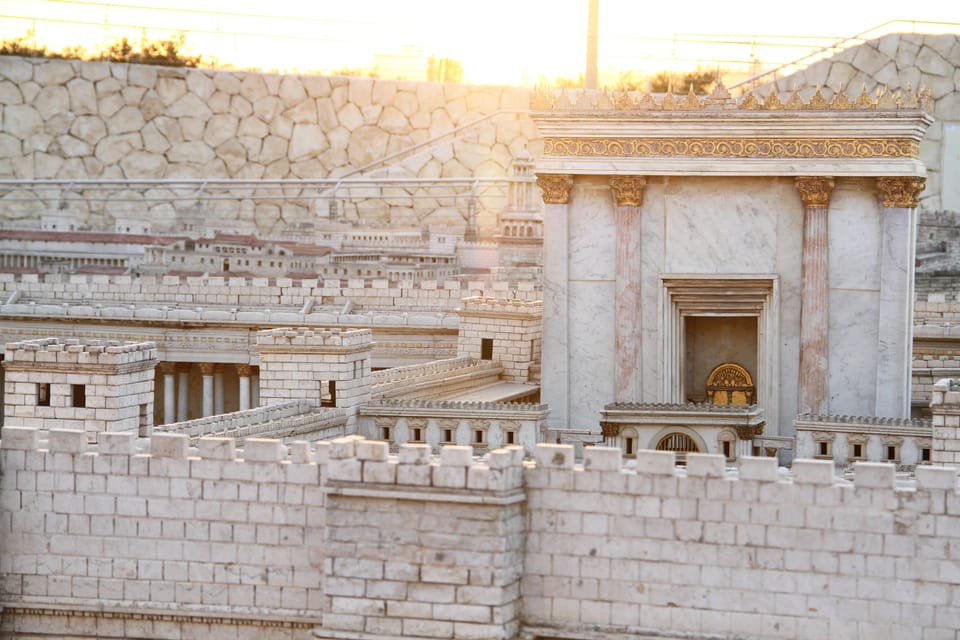Temple Continuity in the NT: Objectors Have the Burden of Proof

The irrelevance of the temple in Christian theology for the last 1900 years goes without saying. However, our understanding of theology should be based on Biblical teaching, not church tradition.
We must base our understanding of the temple upon the foundation of the Tanakh, or "Old" Testament. Similarly, we must understand the New Testament through the lens of the Old Testament. A careful reading of the New Testament in its first-century Jewish context will challenge many traditional Christian teachings on the temple (and, for that matter, all of the Torah).
Based on the New Testament’s recorded history and teaching, I believe the Temple remained relevant for the believing Jewish community in the first century, and no New Testament passage negates the temple’s ongoing significance. Rather than attempting to address Christian objections to the relevance of the temple, I suggest running a thought experiment starting with the status quo of Judaism in the early first century.
Challenge to Objectors
Given that the temple was the center of Jewish worship when Jesus began his ministry, any disruption in its role would have to be proven based on Biblical arguments in the New Testament.
If the New Testament demonstrates the temple's ongoing relevance, then Christian theological objections must be reconsidered.
Premise
The Temple was the central focus of worship for the first-century Jewish community. While Jesus was on earth, his and his apostles’ participation in Temple worship was recorded positively.
John 2:17 records this: His disciples remembered that it was written, “Zeal for your house will consume me.”
Jesus did not instruct his disciples to discontinue Temple worship after his ascension, nor did the NT apostles demonstrate in their actions or teaching that Jewish Christian participation in the temple should cease.
Given this status quo, the burden of proof that the temple is now irrelevant is on those who claim it to be so. I posit that any claim the NT teaches against the temple is inductive reasoning.
Biblical Passages Demonstrating Temple Continuity
Mt 5:18 For truly, I say to you, until heaven and earth pass away, not an iota, not a dot, will pass from the Law until all is accomplished.
Mt 23:2-3 The scribes and the Pharisees sit on Moses’ seat, so do and observe whatever they tell you, but not the works they do.
Acts 2:46 And day by day, attending the temple together and breaking bread in their homes, they received their food with glad and generous hearts.
Acts 3:1 Now Peter and John were going up to the temple at the hour of prayer, the ninth hour.
Acts 6:13-14 …and they set up false witnesses who said, “This man never ceases to speak words against this holy place and the law, 14 for we have heard him say that this Jesus of Nazareth will destroy this place and will change the customs that Moses delivered to us.”
Acts 21:21–24 …and they have been told about you that you teach all the Jews who are among the Gentiles to forsake Moses, telling them not to circumcise their children or walk according to our customs. 22 What then is to be done? They will certainly hear that you have come. 23 Do therefore what we tell you. We have four men who are under a vow; 24 take these men and purify yourself along with them and pay their expenses, so that they may shave their heads. Thus all will know that there is nothing in what they have been told about you, but that you yourself also live in observance of the law.
I Co 9:13 Do you not know that those who are employed in the temple service get their food from the temple, and those who serve at the altar share in the sacrificial offerings?
Heb 5:1 For every high priest chosen from among men is appointed to act on behalf of men in relation to God, to offer gifts and sacrifices for sins.
Heb 8:4–5 Now if he were on earth, he would not be a priest at all, since there are priests who offer gifts according to the law. 5 They serve a copy and shadow of the heavenly things.

